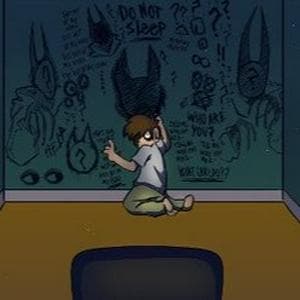Dr. Laszlo Kreizler MBTI Personality Type
Personality
What personality type is Dr. Laszlo Kreizler? Dr. Laszlo Kreizler is an INFP personality type in MBTI, 5w6 - - 614 in Enneagram, in Big 5, in Socionics.
The Laszlo Kreizler in the TV series is most closely aligned with INTJ, but his original counterpart in the books is one of the most archetypal INFPs I’ve encountered in fiction. He seems almost to have been written with the INFP type in mind. In the books, Laszlo is clearly Fi dominant; he’s intense and passionate, and everything he does is driven by his personal principles. He’s generally emotionally reserved but will occasionally have Fi ‘explosions’ where he goes on long impassioned tirades over what’s morally wrong with society and why it damages people. Although introverted, he is often compelled to break the harmony and draw attention to himself to stand up for underdogs. For instance, it’s revealed that Stevie came to live with him because he stood up in a courtroom and spoke out on his behalf, because the judge wasn’t showing compassion to him (Laszlo had no need to do so; he happened to be in the room because he was there for a different case). Unlike the TV character, in the books he’s deeply empathetic and emotionally perceptive. Although he isn’t always socially attuned and graceful in the way an INFJ might be, he’s extremely good at understanding others emotionally and psychologically and at communicating with them one-on-one. That quality of being deeply invested in individuals but sometimes detached from group harmony is characteristically INFP. His emotional intelligence is what makes him so good at what he does; although INTJs can certainly be therapists, this is undoubtedly a job that’s particularly suited to xNFx types. He’s typically quite gentle, rather than abrasive/‘better with books than people’ like the TV character; he only becomes abrasive on the rare occasions when he has Fi explosions or is under intense stress, and even then, he’s not nearly as harsh. He’s also very open-minded and clearly on the Ne-Si axis. He isn’t like a ‘detective’, looking for patterns (Ni) in evidence in his immediate environment (Se) (Sara is more like that); instead, he works by researching and amassing information (Si) and using this to come up with broad, overarching theories (Ne). His conceptual style is holistic rather than pluralistic; he has one central theory of ‘context’ (that people’s behaviour can’t be understood without knowing contextual factors to do with their upbringing) and all of his work is focused on connecting more and more phenomena to it (Ne), and then subsequently defending the moral need to interpret people and the wider world in this way (Fi). He’s most exuberant when discussing his and others’ ideas, and sees the formation of ideas as an external, collaborative, interactive process (Ne), whereas his feeling is an internal process: his feelings emerge mostly through his impassioned assertion of his values, and he avoids discussing his emotions directly (Fi). That’s in part due to trauma, but it’s also an aspect of his personality. Meanwhile, the interaction between Fi and Ne, which gives INFPs a particular ability to put themselves in others' shoes, compels him to understand and empathise with criminals rather than harshly judge them, despite a strong tendency in late-19th century New York society toward the latter. He’s also implied in places to be rather unaware of his surroundings as is typical of INxPs, whose blind spot is Se. Finally, if he's just considered based on the basic categories rather than their underlying functions, he’s idealistic, is people-focused and prioritises compassion over rationality, more aligned with NF than NT types. And, he’s obviously a perceiver: his office is messy, his hair is disheveled, he’s scattered, he misses appointments, and he sees his work life and personal life as intertwined rather than separate. As I’ve said in my post on his TV counterpart, my sense is that he was probably adjusted in the TV series to be a thinker so that he could be a foil for John, who’s a feeler, and to align with the stereotype that people are either ‘book smart’ or ‘people smart’, but never both. I also suspect they wanted to make him less amiable, aligning him with typical TV ‘antiheroes’ for the sake of drama. The book version of Laszlo was perhaps seen as a bit too easy to like; he has flaws, but these are mainly rooted in psychological damage due to childhood trauma. He almost never takes out his anger on others (he certainly doesn’t slap a woman in the face) and is generally very kind. This means he's both intellectually brilliant and highly emotionally intelligent, and therefore may have been perceived as not having enough ‘weaknesses’. Yet, that combination is what I find refreshing about the book version of him. In fiction INFPs are often depicted as emotionally intelligent, but it’s rare for them to be depicted as so academically smart, and in reality, many are.
Biography
‘I knew what was coming: a monologue that was a kind of catharsis for Kreizler, a restatement of some of his most basic professional principles, designed to relieve the enormous responsibility of helping send a man to his death. Kreizler was a confirmed opponent of the practice of executing criminals, even vicious murderers such as Wolff; but he did not allow this opposition to affect his judgment or his definition of insanity, which was, by comparison with that of many of his colleagues, relatively narrow. […] Kreizler’s diatribe began to cover subjects I’d heard him discuss many times before: how a broad definition of insanity might make society as a whole feel better but did nothing for mental science, and only lessened the chance that the truly mentally diseased would receive proper care and treatment. It was an insistent sort of speech - Kreizler seemed to be trying to push the image of Wolff in the electrical chair further and further away’. - The Alienist











